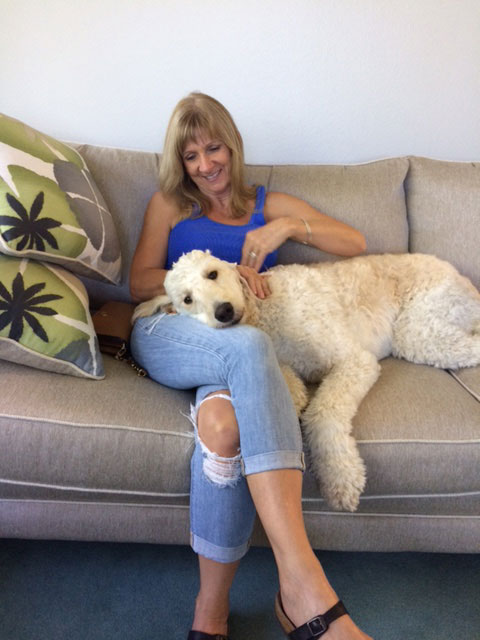God designed us as being hard-wired for relationship. The most obvious reason is that he desires a relationship with us. But he also designed us to desire intimate, close relationships with a mate and/or a few safe same-sex friendships. Without any of these connections in our lives, emotional entropy takes place which inevitably causes chaos in a person’s life.
Without exception, the clients that come in to see me have very few connections to other people or are completely isolated. The end result of this chaos is insecurity, having poor boundaries, false esteem, lack of joy and peace, fearfulness, loneliness, anxiety/depression, substance abuse, codependent/controlling behaviors, relationship conflict, infidelity, and usually a combination of these debilitating symptoms.
God designed us for relationship with him and others because this is the crucible where we grow and mature. This growth is a process; there is not an end point to it, but it does set us on a path of ever-increasing love, joy, and peace. Yes, relationships are often messy, but the alternative is even messier!
Aside from our relationship with our creator, our relationship with our mate affects our lives more than anything else. I see couples that come in and have been together 20 or 25 years and have never intimately bonded. They sleep in separate bedrooms, rarely have sex and then only mechanically, take separate vacations, never do anything fun together, have not developed any common interests, don’t really know what is going on in each other’s lives, and have no spiritual connection. They are essentially roommates with occasional shallow benefits.
This type of intimate relationship saddens God. It is not the way he designed us. Additionally, he knows that it affects our adventure with him more than anything else in our lives. But more importantly, he knows that we are living in non-redemptive time in this type of intimate relationship. We are not experiencing the healing, growth, and spiritual maturity that he longs to help us obtain. This type of intimate relationship represents our staying in the sandbox, while God wants to take us to miles and miles of natural, beautiful, pure, white sand ocean beach!
The Bible talks about “dwelling with our mates with understanding.” This does not mean understanding “why.” It means understanding who they are, what they are about, and, more importantly, what they need. It means being mindful, or conscious IN THE MOMENT as to how our mate needs us to interact EMOTIONALLY with them. It means learning to communicate emotionally.
There are all types of advice, theories, and rules about communicating in a relationship. We can define someone’s style as passive, aggressive, passive-aggressive, or assertive. We can teach people things such as learning the mechanics of communication, including letting the other person finish and not interrupting, knowing when to take a time-out, listening skills, choosing the right time to have a sensitive discussion, etc, etc, but these are all very minor. The most important objective, and in fact a much easier thing to learn is emotional communication.
We communicate with those close to us without saying a word. Just by being in close proximity, we pick up on the quality of the connection with each other. Learning emotional communication causes an ever-increasing dynamic of trust and positive connection with your partner. It means being able to be vulnerable and being able to extend the grace we have each been shown by God to our partner when they are being vulnerable with us. We experience a new kind of closeness and emotional safety.
This is the basis for healing from past hurts, hang-ups, and habits, and it empowers us to grow and mature to higher levels. Love in an intimate relationship is all about tending to, growing, and increasing emotional bonds. These bonds are the basis of loving and being loved. When we learn to be available, responsive, and engaged during brief, key moments of need for connection, we secure deeper and deeper emotional bonds with our partners.
Whether we realize it or not, whether we like it or not, we all have a need for safe emotional connection. This means you, too, gentlemen. We learn to dwell with understanding with our partner when we learn to recognize our partner’s attachment cues, are responsive to them, and engage them on an emotional level. Read the following anecdote of a couple acutely aware of each other’s emotional attachment cues:
* * * * * * *
Peter and Linda were at a Christmas party for Linda’s office. Linda was at the top of her professional life, a corporate trial lawyer earning a six-figure income. She had just been made a partner in her law firm. She was also in the best shape she had ever been in before. In fact, as Peter watched her from across the room, he was amazed at her. She was wearing a low cut, yet very tasteful long dress that brought out the deep blue in her eyes. She was more beautiful than ever to Peter.
Peter, on the other hand, had been laid off and had been job searching for the past six months, to no avail. He had been depressed about not working and had let himself go a little physically. In the mirror just that morning he noticed that he had developed a bald spot, and his hair had seemed grayer than he remembered it.
As Peter watched Linda, he saw her talking to a tall, very fit, older, but ruggedly handsome gentleman. They were both laughing and seemed to be enjoying themselves. He was dressed in a tailored gray suit that clearly revealed his athletic build. Peter even noticed that he had a full head of hair.
At this point, Peter had two choices. He could make a scene, embarrass Linda, and ruin the evening for her, OR he could dip into the reservoir of trust he had built up with his creator and his wife, swallow his pride, and choose the path of being vulnerable to Linda. He chose the latter.
A short while later, Peter was alone in a corner with Linda:
Peter: “You seemed to really be enjoying yourself when you were talking to the guy in the gray suit. In fact, he seemed to be enjoying your company quite a bit as well. When he put his hand on your back, I was feeling pretty jealous.”
At this point, Linda had two choices. She could brush Peter off, roll her eyes, and marginalize his feelings by saying something like: Yes, and he’s got a job, too! OR she could pick up on this key moment of need from her partner and choose to unconditionally love and accept him. She chose the latter.
Linda (in a low voice): “He is a nice-looking man. He’s one of the senior partners. He has a large say in how cases are handed out. I needed to make sure I said hello to him. But, Peter, he’s really a jerk. He’s an egomaniac! He hits on every woman in the office, and he has even hit on me, but he understands that I have a firm boundary and am happily married. Besides I love you, and… (leaning in to whisper in Peter’s ear) when we get home tonight I’m going to show you how much I love you and how much I want you!”
At this point, Peter had two choices. He could react defensively to some of the things Linda had said. He could become more accusatory of Linda, and marginalize her feelings with something like: “If you loved me, you wouldn’t be acting like a tramp at a Christmas party!” or “So you are attracted to him” OR he could pick up on Linda meeting his key moment of need and choose to accept her explanation…and her plan for later!


